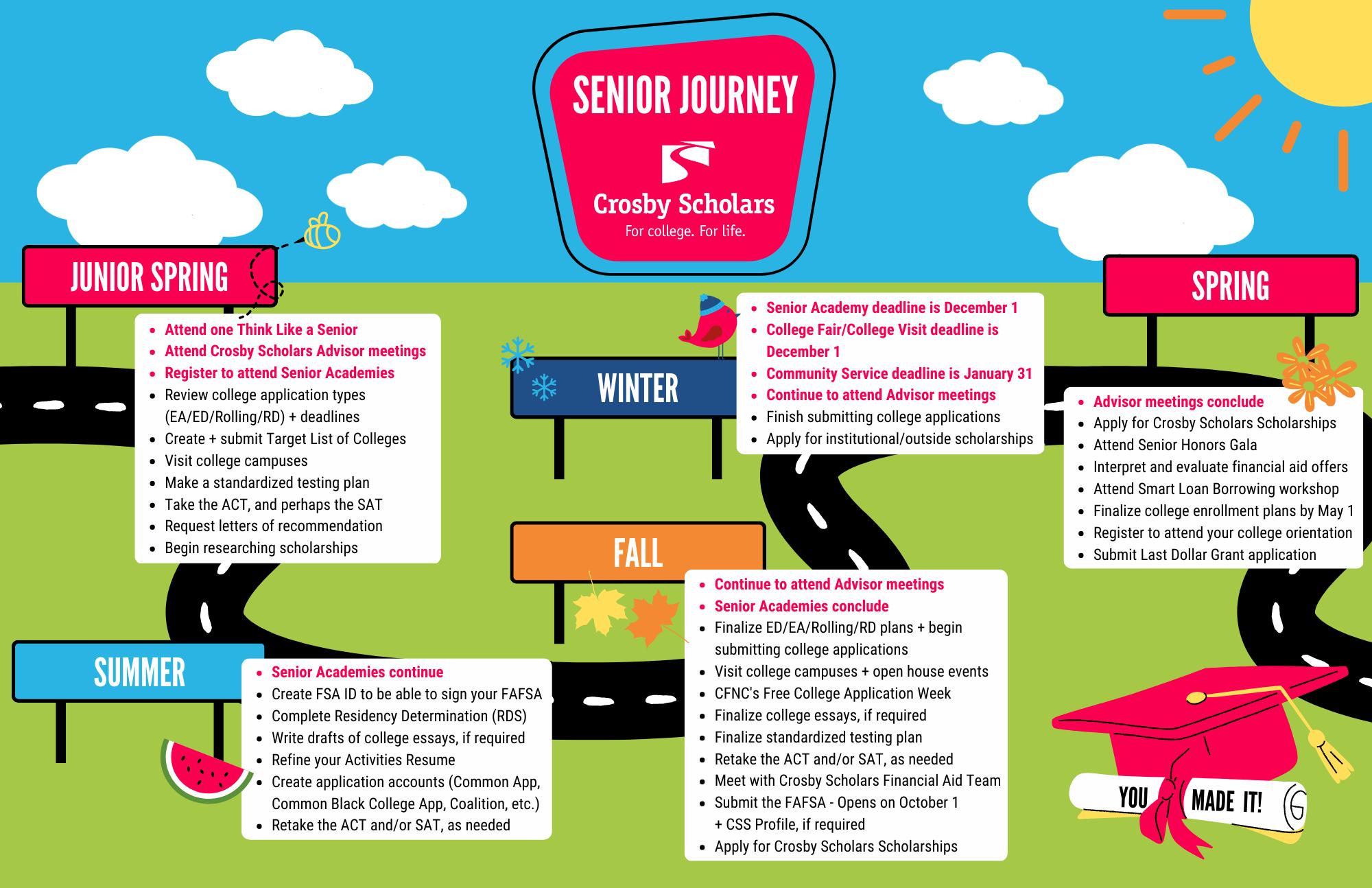BUILDING YOUR TARGET LIST
Senior Academy Class of 2024






 Junior/Senior Program Coordinator
Mary Allen Conforti
Junior/Senior Program Specialist
Jess Hancock
Near Peer Advisor
Kamesia Thompson
Junior/Senior Program Coordinator
Mary Allen Conforti
Junior/Senior Program Specialist
Jess Hancock
Near Peer Advisor
Kamesia Thompson



We went over some great sites for college searching. Those will be shared with you again in a follow up email but commit some time to pulling lists from these tools and getting to know potential schools to add to your list.


There are hundreds of majors.
Don't be intimidated by the list of majors or confusing titles.
tip: Exercise Science = Kinesiology
tip: Global Studies Intn'l Studies
Just learn more about them!
You do not have to "declare" a major usually until your Sophomore year; however, applications will ask you about an intended major. This is because colleges are building a full class of all students interesting in a variety of majors.
It is absolutely fine to choose the "Undecided" (Wake Forest) or "Undeclared" (ECU) or "Exploratory Studies" (NC State) or "General Studies" (Guilford College) or "Deciding" (App State) option as an applicant! Choose what is the best answer for you at the time.

Having a balanced list will set you up for more options!
"Likely"
a college where you are likely to be admitted based on their first year profile compared to your application
"Target"
a college where you are right on target with their first year profile; being admitted will just depend on the rest of the applicant pool and what the college is seeking
"Reach"
a college that is slightly above your application profile or one that a highly selective school (and a reach for everyone)
So much information.
So many choices.
Step 1
Narrow down the majors you will list on applications. Search schools that offer those majors.
Step 2
Narrow that search by size, location, selectivity, cost & type (co-ed, HBCU, religious affiliation, etc.)
Step 3
Compare your profile (GPA, rigor, test scores) to those schools' First Year Profiles or Freshman Snapshot.
Step 4
Identify 3 likely, 3-5 target and up to 3 reach schools from that list
Look at your list. Is there any other reason that you just would not want to apply to 1 or more of these schools?
Do more research. Virtual tours, deep dive into their websites. Warning: do not be swayed by rankings
Look at application requirements. Any reason you could not meet them? (portfolios, test required, etc.)
Yep. More research. Join these school's official mailing lists, follow Instagram accounts and Twitter feeds and follow Admissions blogs.
What special opportunities does each school offer?
Internships? Study Abroad?
Advising? Support services?
the student body make-up
social opportunities (clubs, athletics, Greek life, etc.)
what is the climate? local area? dietary needs? health needs?
mental health support?
exercise facilities & nearby fun Library or Lab facilities?
Studios or equipment?

Rankings are everywhere and they are primarily a marketing tool for the publications who post them. Rankings do not adequately gauge a student's experience nor do they offer you insight on whether a college is a fit school for you.


you should have met twice; next meeting cycle begins in August
go visit! (Crosby tours coming soon!)
24/7 and many have options to save and export generated lists
college websites are amazing!
read Admissions blogs plan ahead review your criteria (often) read your emails
live chat options create priorities
campus tours
Crosby Advisor open family dialogue identify red flags stay aware of dates regional Admissions rep set calendar reminders follow official social media listen to podcasts call Admissions office
Some common questions and then time for YOUR questions!
How many colleges should I apply to?
We recommend beginning your list with 3 likely, 3 target and up to 3 reach schools.
How hard is it to get into [insert school name]?
Like so many questions this year, the best answer is "it depends." Each application cycle brings a new crop of students and new trends.
What does it mean to be a "legacy"?
This terms refers to an applicant who has a close family member who also attended that institution. Some schools will ask you this on your application though it is becoming less common.




